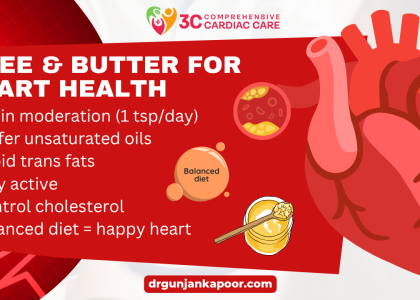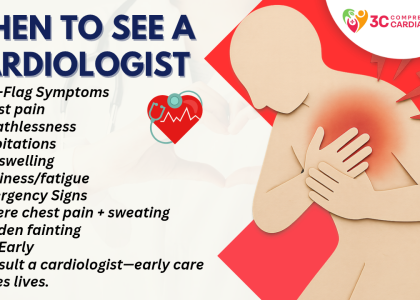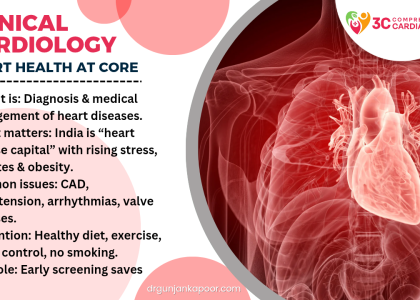
Introduction to Yoga as an Alternative System of Medicine
Yoga, with its roots dating back thousands of years in ancient India, has transcended cultural boundaries to become a revered practice worldwide. Beyond its physical postures (asanas), yoga encompasses breathing techniques (pranayama), meditation, and philosophical teachings aimed at achieving harmony of mind, body, and spirit. In recent decades, scientific research has increasingly validated its therapeutic benefits across various health domains, including cardiovascular health.
Impact of Yoga Techniques on the Cardiovascular System
The impact of yoga on heart health is profound and multifaceted. Yoga can be beneficial for both Primary prevention (meaning people with no pre-existing heart disease) and Secondary Prevention (meaning people with pre-existing heart disease).
Yoga for Primary Prevention of Heart Disease: One of the scientifically documented works has been on mindfulness practices like Transcendental meditation. Research studies have shown that TM helps to lower body weight, blood pressure, and cholesterol levels, improves diabetes control, helps in quitting smoking and of course significantly reduces stress levels. TM causes a modest reduction in blood pressure values and helps to decrease the chances of getting a stroke or heart attack. These meditation techniques primarily reduce the sympathetic activity (responsible for fight/ flight reaction). So Yoga combined with taking care of our diet and our addictions can save many lives which are lost due to a heart attack.
Yoga for Secondary Prevention: In patients who already have blockages in the heart vessels, practising mindfulness meditation (TM) can on a long-term basis reduce the chances of getting a heart attack, stroke or death from a coronary event. Regular Yoga practices can help to prevent the progression of cholesterol deposits (plaques) in the blood vessels or sometimes even regress them. One of the ways to check this plaque status is to do an ultrasound of the neck vessels (Carotid arteries) and scientific studies have shown the benefit of Yoga on plaque progression by this technique. Yoga with diet can of course reduce bad cholesterol levels, body weight, angina symptoms, stress levels and improve physical fitness.
Modern Medicine and Yogic Interventions: A Symbiotic Relationship
In the realm of modern medicine, where evidence-based practices dominate, the integration of yoga as a complementary therapy for heart health is gaining recognition. Cardiologists and healthcare providers are increasingly recommending yoga alongside conventional treatments. While medications and surgical interventions target specific aspects of cardiovascular health, yoga offers a holistic approach by reducing stress, promoting relaxation, and fostering healthy lifestyle modifications such as improved diet and physical activity.
Conclusion: A Call for Action
As we celebrate International Yoga Day, I urge everyone, especially those with or at risk for heart conditions, to consider incorporating yoga into their daily routine. However, it’s essential to practice under the guidance of qualified yoga instructors who can tailor routines to individual needs and health conditions. Whether you’re recovering from a cardiac event, managing hypertension, or simply aiming for preventive care, personalized yoga plans can play a pivotal role in enhancing your heart health journey.
Let’s harness the ancient wisdom of yoga alongside the advancements of modern medicine to foster a future where holistic well-being thrives. Together, through mindful practices and informed choices, we can pave the way for healthier hearts and happier lives.









